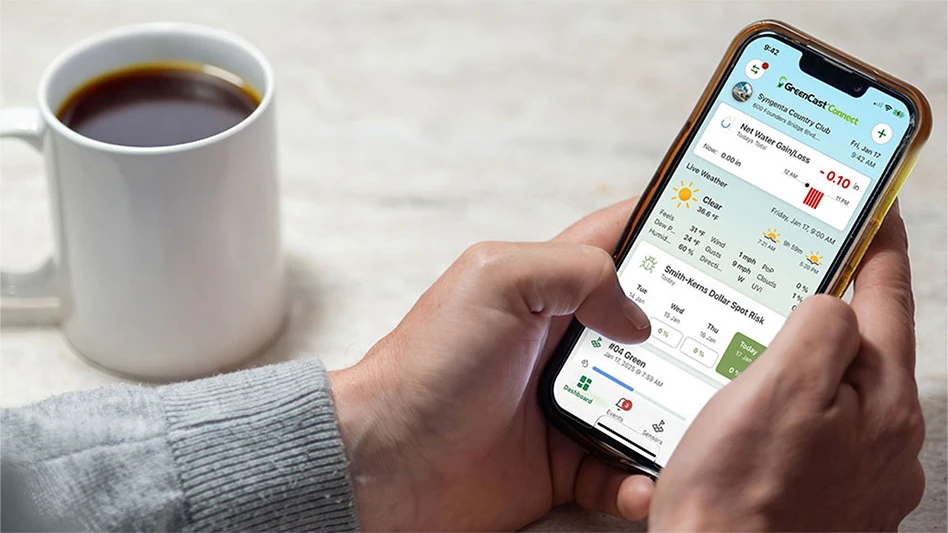
 Tim Moraghan Tim Moraghan |
Have you ever read Rule 23 in the Rules of Golf? Specifically the definition of loose impediments? They are natural objects, including stones, leaves, twigs, and the like. I recently became particularly interested in the word “stone.” What, you might ask, does this have to do with an issue about water? Quite a lot, unfortunately. In the past, I’ve used this column to discuss “outside the ropes” topics such as life/work balance, stress and skin cancer, situations that can affect the ability of any of us to do our job. I’ve recently developed new respect for another potential health issue – hydration. More simply, water. But in this case, what we drink. Whatever we do during the day, our body needs water to keep going. Certain activities like exercising and traveling are especially hard on the body’s water supply and can quickly make us dehydrated. There’s more than a little irony in the fact that flying in an airplane – in a pressurized cabin filled with dry air – is especially dehydrating so the experts suggest drinking lots of fluids, yet the airlines want us to stay strapped in our seats, restricted from reaching the facilities. I do a lot of traveling, much of it consulting to clubs and courses. I’m usually telling people to turn water on or off to create a particular playing condition or encourage healthy vegetation; all the while remaining conscious of the environment in which we work. On a recent trip, I failed to pay attention to my hydration level. I began experiencing the feeling that signals the onset of a kidney stone. If you’re unfamiliar with this sensation, imagine forcing a baseball through a garden hose – in your body. I’m not looking for sympathy, but I want to share a hard lesson learned about a different kind of loose impediment. Far from home, I found myself in the emergency room and in great pain. I had to fly home with a catheter taped to my leg. (Try explaining that to a TSA agent.) When I made it home and saw my urologist, he said we’re all guilty of neglecting our water intake. The comparison to how we care for golf courses is more apt than any of us want to admit. In both cases, you must know just how much water is necessary for good health, whether for the turf or your plumbing. Failing to properly hydrate either will lead to more pain that you want. Trust me. I’m relating this story not only because it just happened to me but because we are heading into golf’s high season, the most stressful time for superintendents, their staffs and our courses. Which makes it the perfect moment to remember the importance of the water you drink to your physical and mental health. How much water should you drink? I’ve heard from 8 to 10 glasses a day up to a gallon, depending on your activity level. It’s a good question to ask your own doctor, especially if you’ve had kidney stones or other dehydration issues. Even if this is a problem unknown to you, be careful. Regular exercise as well as working outdoors in heat and humidity (mountain and desert supers this means you, too!) can prove dangerous. Sweating and normal breathing use up water, more quickly the hotter and more humid it gets. And downing bottles of soda or cups of coffee are not enough. Sadly, by the time you feel the need for water, it’s too late. I don’t want you or a member of your staff fainting while operating equipment or driving across the course. My urologist said it is very important to monitor the color of your urine: “If it’s clear, no fear; if it’s yellow, take a drink, fellow.” Incidents of kidney stones and dehydration are also on the rise due to the increasing levels of obesity in the population. I’ve written before about how this job is very stressful and the problems caused by being overweight. I have discovered kidney stones were a 4 to 1 relationship for men to women, which have changed to 2 to 2 relationship due to poor health habits. Here are some simple things to remember about hydration:
I didn’t do any of the above, which resulted in a kidney stone about the size of the fingernail on my pinky, lodged on top of my urethra like a ball on a tee. When it decided to play through, it wasn’t fun.
Tim Moraghan, principal, ASPIRE Golf (tmoraghan@aspire-golf.com). Follow Tim’s blog, Golf Course Confidential at http://www.aspire-golf.com/buzz.html or on Twitter @TimMoraghan |

Explore the July 2015 Issue
Check out more from this issue and find your next story to read.
Latest from Golf Course Industry
- Turfco introduces riding applicator
- From the publisher’s pen: The golf guilt trip
- Architect Brian Curley breaks ground on new First Tee venue
- Turfco unveils new fairway topdresser and material handler
- Ignite Attachments adds new box plane and grapple
- Mackenzie & Ebert working on new Caribbean course
- Keswick Hall renovating Full Cry course ahead of big year
- The alpha wolf





